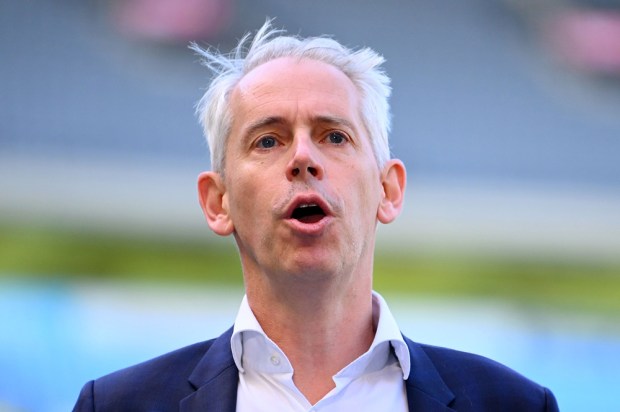To great fanfare, Oxfam has again launched its annual report on wealth and inequality. This year, as with past editions, the report is replete with hyperbole, melodrama, and moralising. It doesn’t even pretend to be objective, but makes grandiose and often dubious claims such as ‘The global inequality crisis is reaching new extremes,’ and ‘The richest 1 per cent now have more wealth than the rest of the world combined,’ and ‘Power and privilege is being used to skew the economic system to increase the gap between the richest and the rest,’ and ‘The fight against poverty will not be won until the inequality crisis is tackled.’ There’s a whole long-form article just waiting to be written on these alarmist headlines, but suffice to say it’s all very scary stuff and YOU should take some of the blame!
But then, Tall Poppy Syndrome is a very scary condition. Imagine going through life concerned, not with your own gifts and abilities, finances and earning potential, but with everyone else’s. It would be awful to have your opinion as to the goodness or otherwise of the world, based not just on everyone else’s condition, but on the that of the wealthiest of the wealthy. Oxfam don’t have to imagine what this depressing existence would be like; they know it, live it, breathe it, and revel in it. Last week’s Oxfam annual report is a tiresome yet vainglorious celebration of…well… Oxfam. And, like all such publications, serves mainly to vindicate and justify its own existence, and as a grotesque marketing tool for its own efforts.
The last two decades have seen an unprecedented reduction in the number of people living in poverty. From 1990 to 2010 even Oxfam itself estimates the number to have been halved. In the last decade, the results are even more impressive. The advent of cheap electricity, among other factors, has seen literally billions of people lifted out of poverty – not through government programs, the development industrial complex, or good intentions, mind you – but through capitalism and relatively free markets which take advantage of an economy’s ability to produce goods or services. Such thinking, while reluctantly acknowledged by the poverty lords at Oxfam, is repugnant to them. The report states:
‘Yet had inequality within countries not grown during that period, an extra 200 million people would have escaped poverty. That could have risen to 700 million had poor people benefited more than the rich from economic growth.’
The evidence for the first proposition is spurious. The evidence for the second, non-existent because of the meaningless and vague causation it refers to: ‘…had poor people benefited more than the rich.’ It speaks to the perverseness of the whole Oxfam endeavour. The poor have benefited more than the rich – not in absolute dollar terms, obviously, but in the percentage increase in incomes, and in percentage increase in buying power for necessities and luxuries. A million dollar increase in weekly earnings for a billionaire has little impact on their lifestyle. It is likely even to go unnoticed. Not so the three-dollar-a-day increase for the Bangladeshi labourer or clothing factory worker. The latter knows that there has never been a better time to be poor, and is usually disinterested in the politics of envy because experiences tells them that poor people don’t benefit from economic growth in isolation.
Despite its imprecision, the misleading statement also gives the game away for Oxfam. The ‘organization that exists to tackle poverty’ actually has as its main project tackling wealth. This is part of a larger problem with many charities that were initially established to alleviate suffering – i.e. to actually help people – but that have happily substituted that function for the far less laborious, and infinitely sexier tasks of ‘awareness raising’, ‘government advocacy’, and of course, report writing.
Oxfam’s origins are utterly noble: in 1942 a Quaker businessman, a Canon of the Cathedral, and an Oxford Don met as the Oxford Committee for Famine Relief to arrange for food to be sent, despite an Allied naval blockade, to enemy-occupied Greece, where its inhabitants and refugees were starving.
But its unhealthy interest in unsound economics, the politics of envy, and demonising the wealthy has become an obsession with the richest of the rich, which ultimately harms the poorest of the poor.
Got something to add? Join the discussion and comment below.
Get 10 issues for just $10
Subscribe to The Spectator Australia today for the next 10 magazine issues, plus full online access, for just $10.
You might disagree with half of it, but you’ll enjoy reading all of it. Try your first month for free, then just $2 a week for the remainder of your first year.













Comments
Don't miss out
Join the conversation with other Spectator Australia readers. Subscribe to leave a comment.
SUBSCRIBEAlready a subscriber? Log in